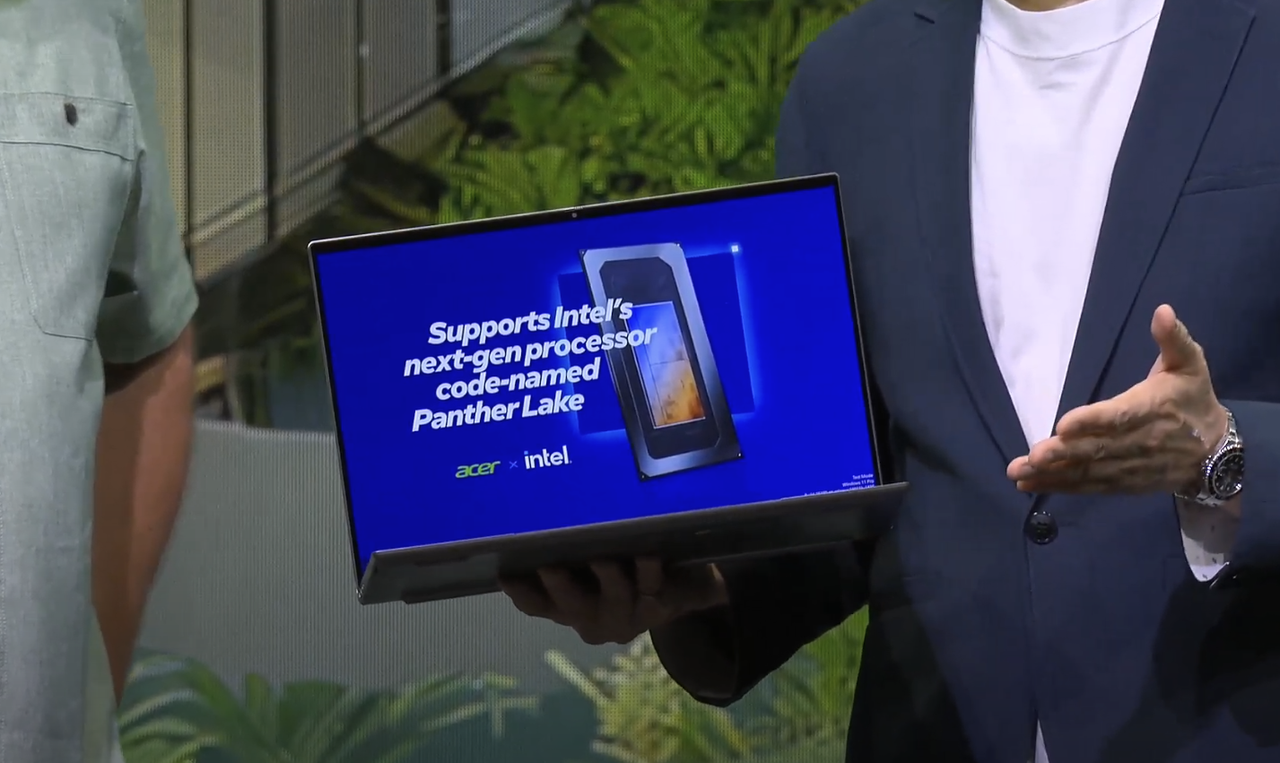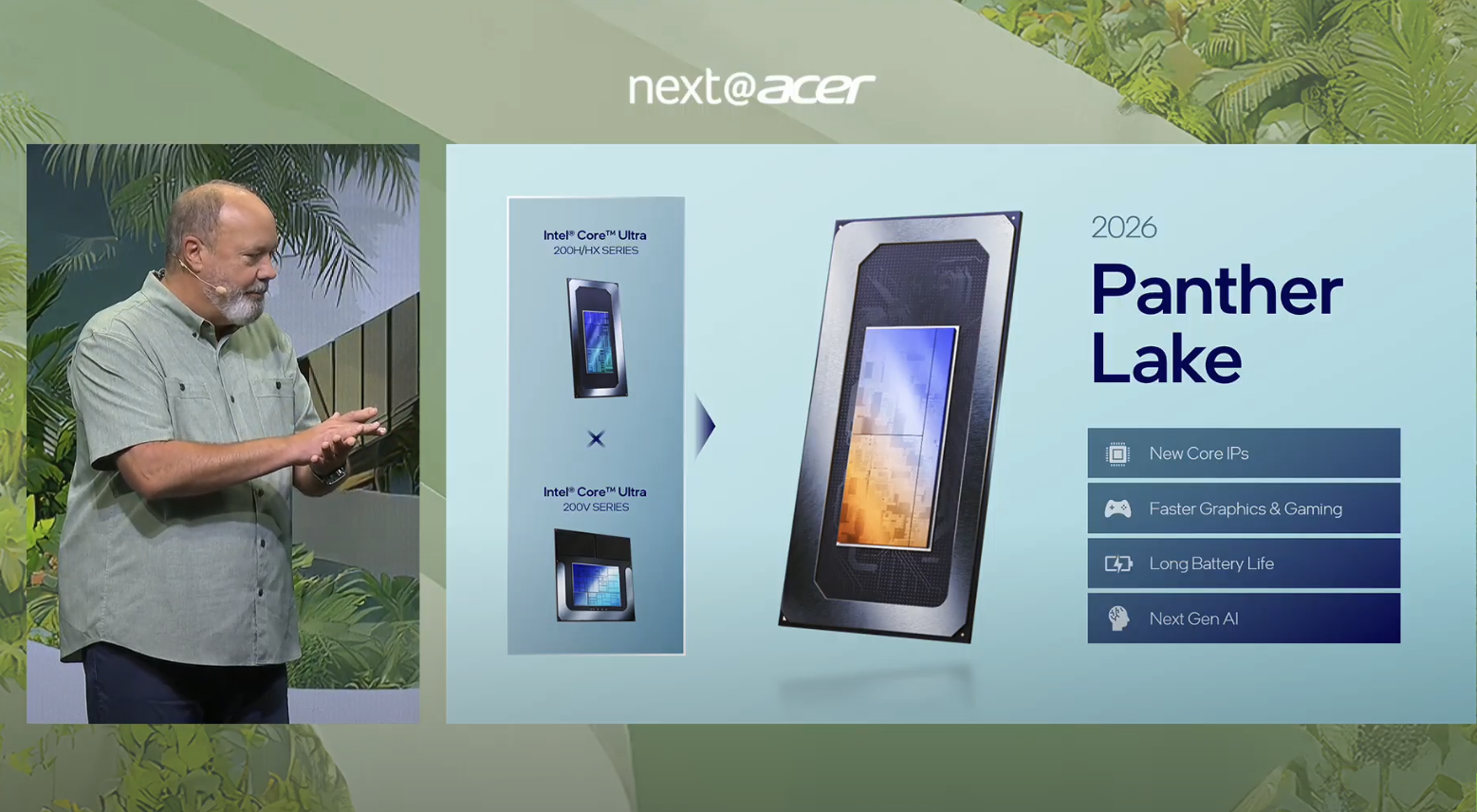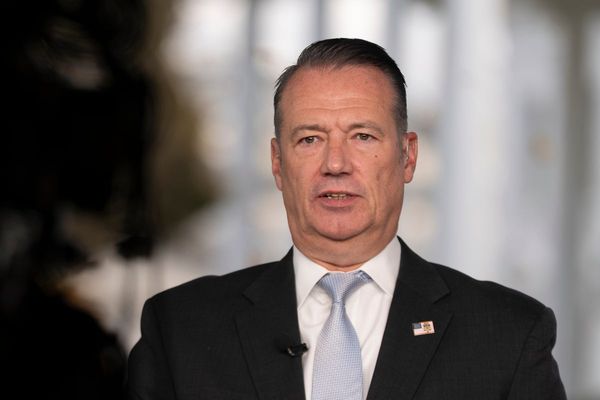
Give it up, everyone, for the first laptop based on Intel's portentous Panther Lake CPU, the Acer Swift 16 AI. Acer has been showing off the new portable at the IFA 2025 show despite the fact that the new laptop isn't due to go on sale until early next year.
Panther Lake, of course, is Intel's critical new mobile CPU that will debut the once all-important 18A node. Expected to be branded Intel Core Ultra 300 Series, Panther Lake sports Cougar Cove P-cores and Darkmont E-cores, with the mix rumoured to be four P-cores and 12 E-cores.
Perhaps more exciting for us, Panther Lake will have Intel's next-gen "Celestial" Xe3 graphics tech, with the rumour being a maximum of 12 Xe3 cores. Intel's current Lunar Lake laptop chip has eight Xe2-spec iGPU cores and is pretty competitive with AMD's equivalent Strix Point laptop in gaming terms. So, 12 Xe3 cores should represent a decent gaming upgrade.
Panther Lake is also going to bring a big boost in AI performance. Lunar Lake can hit a combined 120 TOPS AI performance from the combined power of its NPU and GPU, but Panther Lake is rumoured to lift that to fully 180 TOPS.
That's critical because the big pitch for Panther Lake and the Acer Swift 16 AI, according to Intel VP Jim Johnson, is to "bring AI agents and agentic AI onto the local PC." In other words, to run AI locally on your actual PC or laptop instead of in the cloud.

That aside, the Acer Swift 16 AI also claims to have the world's largest haptic touchpad and sports a 16-inch 120 Hz 3K OLED screen and up to 32 GB of LPDDR5X memory. Moreover, the fact that it's being shown off at IFA 2025 does at least suggest that Intel's new 18A chip remains on course to go into production later this year, with the first Panther Lake laptops going on sale early in 2026.
There was once a time when everything seemed to hinge on Panther Lake and the 18A process node that it would debut. Former CEO Pat Gelsinger said he'd bet Intel on 18A and it was to be the basis of Intel's push into a new era as a customer fab, making chips for the rest of the computing industry.
Under new CEO Lip Bu Tan, Intel has shifted tack pretty dramatically. The emphasis for its foundry business is now 14A, not 18A, and that's only if customers can be found. If they can't, then 14A might be cancelled altogether and with it, just possibly, Intel's ambitions to make its own chips, let alone those of customers.
Ultimately, Intel remains in flux, and it's anyone's guess if 18A will be any good. The same is true for whether it will be used for other chips beyond Panther Lake, and if 14A will ever come to be, and along with whether Intel's status as an integrated chip design and manufacturing house has a long-term future.







